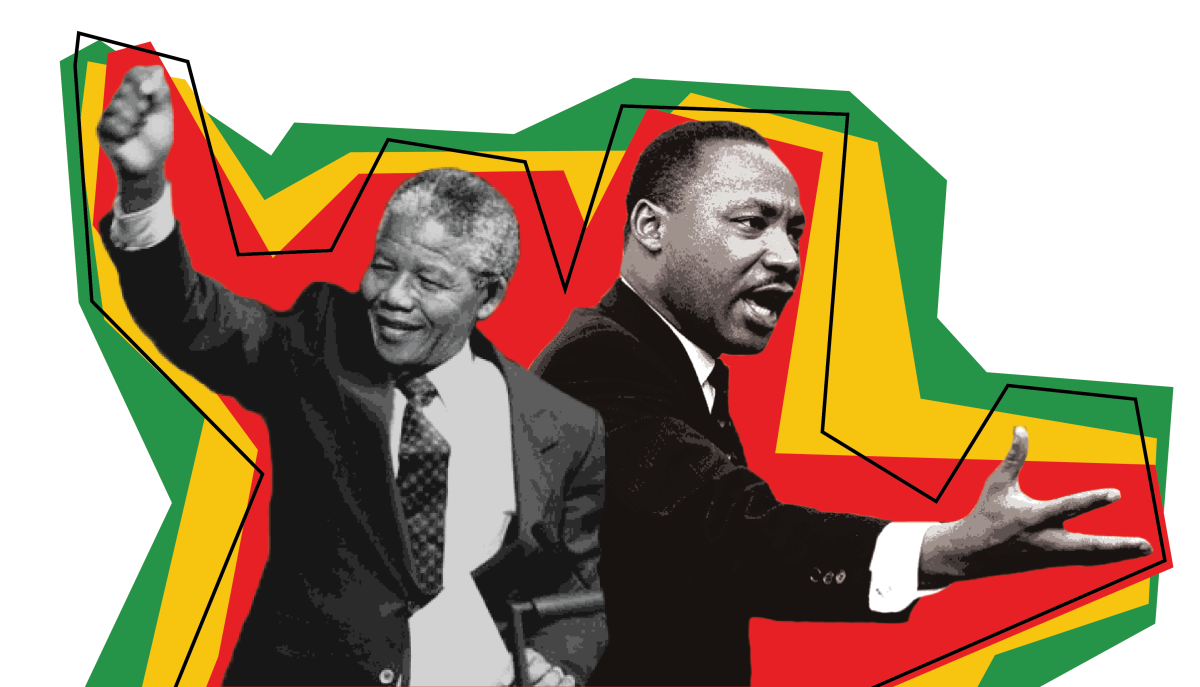The summer of 2020 was a defining period in contemporary civil rights activism when widespread protests across the United States took place after the tragic death of George Floyd. These demonstrations were largely peaceful, though they occasionally escalated into more radical forms of protest.
To no surprise, many Republicans repurposed the rhetoric and ideologies of historic civil rights leaders to challenge contemporary progressive movements advocating for police reform.
Quotes from Rev. Martin Luther King Jr., like “Darkness cannot drive out darkness, only light can do that. Hate cannot drive out hate, only love can do that,” were strategically deployed against minority groups to advocate for a passive approach to combating inequality. Although King’s words are undoubtedly noble, you can’t blame Black activists for being upset that his dream was never fully realized.
Yes, King achieved his dream of destroying several pieces of discriminatory legislation; however, his dream also included a commitment to ending racial economic inequality.
In a letter written to his wife, Coretta Scott King, King wrote, “Our economic system is going through a radical change, and certainly this change is needed. I would certainly welcome the day to come when there will be a nationalization of industry. Let us continue to hope, work and pray that in the future we will live to see a warless world, a better distribution of wealth and a brotherhood that transcends race or color.”
Indeed, it may surprise some, but King advocated for a vision that aligned with the principles of socialism. In fact, King said in the same letter, “I imagine you already know that I am much more socialistic in my economic theory than capitalistic.”
If this comes as a surprise, it is not by mistake. Over time, the political messages of our civil rights leaders have been bastardized in order to make them appear more temperate and neutral.
King isn’t even the most blatant example of this trend — no man has been “Gandhi-ized” more than Nelson Mandela.
Nelson Mandela is memorialized as an emblem of peace, often remembered for nearly three decades in prison, victimized by an inherently racist justice system. However, this common perception captures only half of the truth. Indeed, Mandela was unjustly imprisoned by a system steeped in racial discrimination. However, Mandela actively chose to resist this oppressive regime by any means necessary to him, including both peaceful and violent modes of protests.
Ironically, Mandela’s move to establish uMkhonto we Sizwe, the military arm of the African National Congress, became the key to bringing the apartheid government to the negotiating table, leading to the end of apartheid.
Mandela, as well as King, advocated for far-left ideologies like socialism. Mandela was once a part of the South African Communist Party, and the Soviet Union and Castro’s Cuba provided arms and military training to uMkhonto we Sizwe. For these reasons, Mandela’s name remained on the FBI’s terrorist watch list until 2008, when he had already reached the age of 90.
Civil rights moments, not just people, have been sterilized and stripped of all radicalization. King’s protests serve as an example of this. What many people don’t understand about King’s movement is that it was violent. The purpose of his non-violent attitude was to televise to the world the barbarity and cruelty of those who reacted to his non-violence with violence.
The Civil Rights Movement is often remembered for its peaceful demonstrations, such as the iconic March on Washington. This event was largely free of counter-protests and is widely celebrated for its powerful impact on civil rights legislation. However, the most transformative protests during this era were those met with significant violence.
An example is the march from Selma to Montgomery, aimed at combating voter suppression. Termed “Bloody Sunday,” this march saw over 600 Black activists face brutal attacks from police and counter-protesters. This confrontation was instrumental in catalyzing profound legislative change, including the Voting Rights Act of 1965 passage.
Sadly, peaceful protests like the March on Washington are overemphasized as well. Although the event did wonders for the consciousness of America, it did not result in a concrete piece of legislation. For this reason, Malcolm X coined the protest “The Farce in Washington.” In reality, the biggest response came from the Ku Klux Klan when they killed four Black girls in a church bombing in Birmingham.
This information may suggest my aim is to radicalize you. My true intention is to present a truthful portrayal of figures we hold in high esteem and the pivotal events that catalyzed significant progress. By doing so, I hope that we can emulate the events correctly in the future.
If we were to overidealize and pacify Black leaders like Mandela and King, nobody will ever be able to measure up next to them. However, that is not true.
You can measure up next to them.














